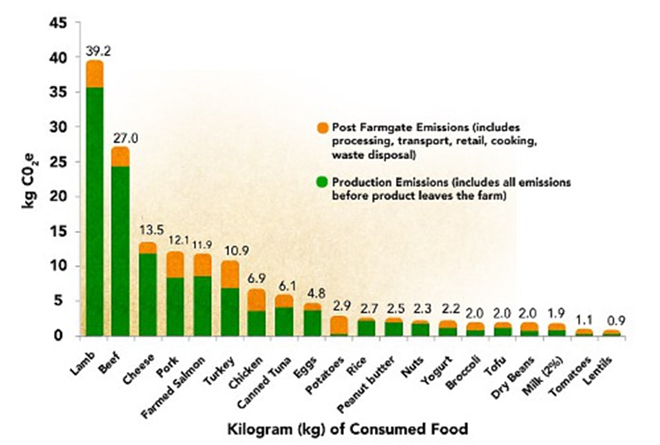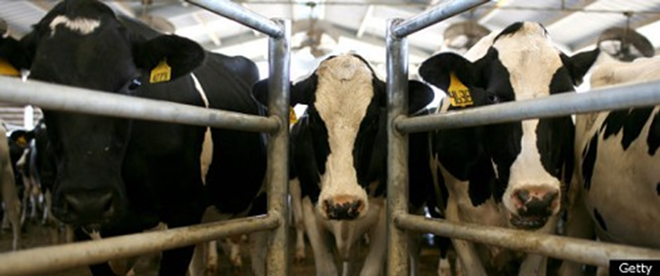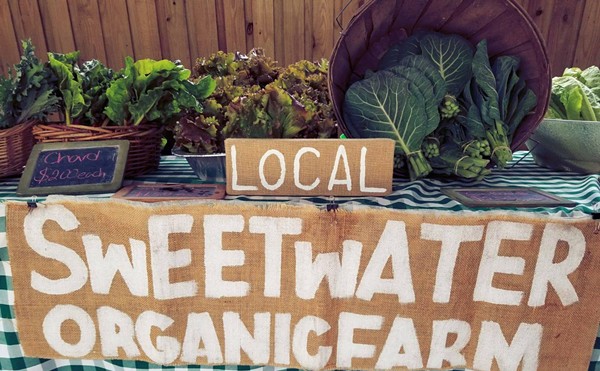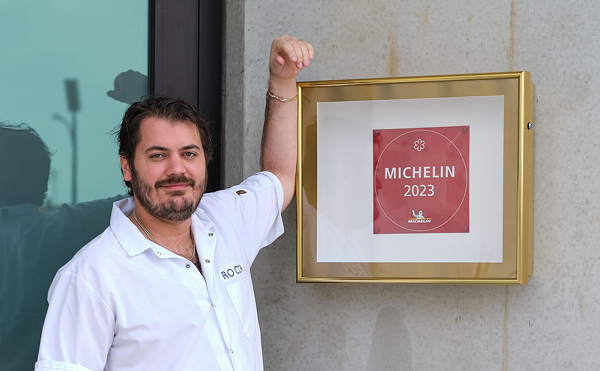Besides production, she also notes packaging, processing, transportation, cooking, and even waste (20 percent of edible meat is thrown out into a landfill) adds a negative impact to the environment. But more specifically, the report targets lamb, beef and cheese as releasing the most greenhouse gas emissions among a number of commonly-consumed proteins and vegetables.
Figure 1. Full Lifecycle Greenhouse Gas Emissions from Common Proteins and Vegetables

- Kari Hamershlag, EWG Senior Analyst
-
The chart marks Lamb as having the greatest impact on the environment by generating 39.3 kg (86.4lbs) of carbon dioxide equivalents for each kilo eaten. While beef is about 50 percent lower than that,—27.1 kilo (59.6 ilbs)—30 percent of the meat consumed in America is beef, not Lamb. Thus, beef has a significant contribution to the U.S. greenhouse gas emissions.
But vegetarians, beware! Cheese also plays a significant role in generating greenhouse gasses. According to the chart, cheese is the third-highest culprit at a shocking 13.5 kilos (29.7 lbs) of cardon dioxide equivalents for each kilo eaten. However, less dense cheese, like cottage cheese, results in fewer greenhouse gasses since it requires less milk to produce.
But even if meat and cheese consumers don’t find themselves affected by the environmental report, Hamershlag touches on the health risks as well. According to her, “large quantities of beef and processed meats increases your exposure to toxins and is linked to higher rates of health problems, including heart disease, cancer and obesity.”
To get a better understanding of the health side of meat and cheese eating, Catherine Pearson, a writer for AOL’s Healthy Living column, highlights the report’s findings on eating too much meat and cheese. The real question being: how much is too much meat, and how do we cut back?
Ultimately, the EWG doesn’t necessarily say to stop eating meat and dairy entirely. But the advocacy group does encourage eating less meat and promoting ideas like “meatless Mondays” into a weekly dinner schedule. Oats, lentils, chickpeas, beans, cabbage, onion, garlic and kale, are good substitutes to help wing you away from a heavy meat diet. But if you must eat meat, simply eating local or grass-fed meats, they say, can lessen the environmental effect of greenhouse gasses also.
To read the full report, click here.


















